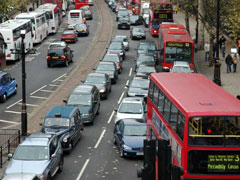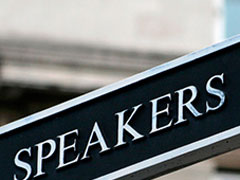
It seems that we can never get enough rags-to-riches stories or the opportunity to unearth the secret to earning more money. But what about those people at the other end of the pay scale?
Low wage and entry-level jobs can be important for those trying to enter or re-enter the labour market. However, it becomes problematic when low paying jobs stop being a stepping stone and workers get stuck at the bottom of the labour market. But this is more often the case than widely known. According to a study by the Institute for Public Policy Research (IPPR) more than five million employees, a fifth of the workforce, are low paid -- earning less than £15,000 a year.
As the economy worsens, risks are high that this number will worsen as well -- despite the fact that the minimum wage has increased to £5.73 per hour for those aged above 22 years, and £4.77 per hour for workers aged between 18 to 21 years. But, labour is in demand for these low-paying jobs. And according to the IPPR study it is projected that without significant changes in policy there will still be a relatively similar number of low-paying jobs in 2020.
Start low to move up
However, many low-paying jobs are perfect fits for students who want to earn a little cash or for anyone who wants a second job. Often, these jobs have flexible or unconventional hours, so you're not stuck in a cubicle from 8 to 5 every day. Perhaps more importantly, these jobs allow you to get a taste of a company or industry so that you can begin building your career.
In his book "Everything I Know About Business I Learned at McDonald's", Paul Facella describes an example of how jobs that don't pay a lot can form a strong foundation for career growth. Facella began working on the other side of the counter at McDonald's when he was 16 years old. He went from serving burgers to serving as a regional vice president with the company. And now he has a book, which is more than most people can say.
Earnings can vary widely for the same job in different industries, at different companies and in different geographical locations. London cabbies can earn about £30,000 to £40,000 a year, almost one-third more than the average for the occupation across the UK. And thanks to the tipping etiquette, waitpersons and bar staff can often improve their paycheques.
So with this in mind, take a look at the 20 lowest paying jobs in Britain and see how they might factor into your professional goals. *
Earning from £20,000 to £10,000 per annum:
1. Laboratory technicians: £19,206
2. Forestry workers: £18,747
3. Legal secretaries: £16,836
4. Debt, rent and other cash collectors: £15,242
5. Call centre agents/ operators: £14,250
6. Housekeeping occupations: £14,170
7. Taxi, cab drivers and chauffeurs: £13,931
8. Chefs, cooks: £13,499
9. Animal care services: £12,922
10. Receptionists: £11,368
Earning less than £10,000 per annum:
11. Educational assistants: £9,865
12. Hairdressers: £9,506
13. Library assistants/ clerks: £9,457
14. Sales and retail assistants: £8,335
15. Kitchen and catering assistants: £7,422
16. Retail cashiers and check-out operators: £7,671
17. Waiters, waitresses: £7,571
18. Bar staff (no official salary data available for this position)
19. Travel and tour guides: £6,899
20. Cleaners: £6,199
The list above is by no means a comprehensive one and there are a number of other occupations that pay the same as a cleaner or receptionist, for instance.
Source:
Stephanie Loleit, CareerBuilder.co.uk writer / MSN Careers
Annual Survey of Hours and Earnings 2008, Office for National Statistics.


